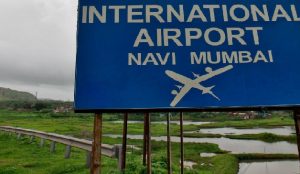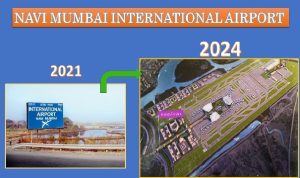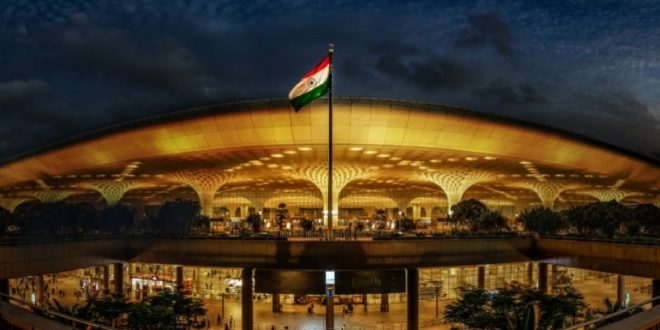25-04-2023
Bureau Report
NEW DELHI/ MUMBAI: When the first runway at Navi Mumbai International Airport becomes operational in late 2024, Mumbai’s second airport will be able to handle 20 million passengers a year.
Once completed in 2032, the airport will ultimately be able to cater to 90 million annual passengers.
 The airport’s developer and the city’s government say the project is an essential piece of infrastructure to ease pressure on the existing Chhatrapati Shivaji Maharaj International Airport, which currently caters to nearly 50 million passengers per annum but some aviation experts and activists are concerned that the airport’s location poses a risk to air safety. They say the site’s proximity to two major bird sanctuaries and the feeding spots of several species of migratory birds leaves aircraft vulnerable to bird strikes.
The airport’s developer and the city’s government say the project is an essential piece of infrastructure to ease pressure on the existing Chhatrapati Shivaji Maharaj International Airport, which currently caters to nearly 50 million passengers per annum but some aviation experts and activists are concerned that the airport’s location poses a risk to air safety. They say the site’s proximity to two major bird sanctuaries and the feeding spots of several species of migratory birds leaves aircraft vulnerable to bird strikes.
So far, their pleas appear to have fallen on deaf ears.
Navi Mumbai International Airport is being built in Navi Mumbai, a planned development that forms part of the wider Mumbai Metropolitan Region, chosen for its proximity to the country’s financial capital and international port facilities. The airport site is close to the business district of Belapur, manufacturing hubs such as Taloja, Patalganga, Ambernath and Roha, and the city of Panvel.
The site is also located little more than 10km (6 miles) from Karnala Bird Sanctuary, home to more than 200 species of birds, and close to mangroves, mudflats and wetlands that attract migratory birds such as flamingoes, starlings,  buntings and rose-finches. Many of these natural sites are being reclaimed for the construction of the airport.
buntings and rose-finches. Many of these natural sites are being reclaimed for the construction of the airport.
SM Satheesan, an expert in bird strike prevention, believes the new airport’s location makes it “highly dangerous,” especially when considering a bird strike case he investigated in New Delhi some years ago that took place far from any habitat.
“I examined the bird remains and they belonged to flamingoes, despite there being no major flamingo habitats in the area,” Satheesan told media. “Now at the Navi Mumbai site, where there is a flamingo sanctuary nearby, the flamingoes are going to create havoc!”
Satheesan said that destroying birds’ natural habitats like mudflats and wetlands also makes it more likely they will venture onto the airport land.
 Pressmediaofindia
Pressmediaofindia




